- Would you begin by telling us about how the Suzanne Dellal Centre was founded?
-
The Suzanne Dellal Centre opened on October 19, 1989. Its site was originally a school complex (boys school, girls school and teachers school) of which the facade was left in its original state while the rest of the facility was rebuilt over a period of five years to its present state. The primary participants in the founding of the Centre were the Dellal Foundation, the Municipality of Tel Aviv-Yafo and the Israeli Ministry of Culture and Education, with the Tel Aviv Foundation assuming responsibility for the construction.
It was the tragic death of the wealthy Dellal family’s beloved daughter Suzanne in an accident that led to the founding of the Centre. Suzanne had not been a dancer, but in the family’s search throughout Israel for a building to dedicate to the memory of their daughter, they learned of building where the present facility was built through a son-in-law of the family whose company had an office in Tel Aviv. At the time, the building was run down to the point that the city of Tel Aviv had scheduled it to be torn down, but the Dellal family offered to provide the funds to renovate it for use as a cultural centre.
At first, the Suzanne Dellal Centre began operating as a facility for theater and dance, but gradually it became focused on dance. In the beginning there was no specific program. At that time, the Batsheva Dance Company happened to be looking for a new facility, so it was arranged for them to move to the Suzanne Dellal Centre and make it their new base of operations. - Batsheva Dance Company was founded in 1963 and is one of Israel’s leading dance companies. You were originally one of their dancers. After Ohad Naharin became artistic director of the Batsheva Dance Company in 1990, it quickly developed into an internationally renowned company. The time when he took over as artistic director was about the same time the company moved to the Suzanne Dellal Centre, wasn’t it?
-
When I was dancing with the company it was located in a four-story building near the center of Tel Aviv. So, the move was quite a big step.
At first, the Suzanne Dellal Centre had just two studios. After that a theater facility was added, but it wasn’t for any specific company, it was an open theater. And, this gave the Israeli dance world a place, in the Suzanne Dellal Centre, where dance could be created and performed.
Just around this time the main dance companies were seeing the emergence of a new generation of dancers. It was not only at Batsheva but also at Israel’s other major dance companies like the Kibbutz Contemporary Dance Company, where its founder Yehudit Arnon was replaced by the new artistic director Rami Be’er.
After gaining experience working as director of the Dancity center in Newcastle, UK, and its dance company, I returned to Israel in 1988. Soon after I was asked to assume the directorship here and took the position in 1990. At Dancity I learned not only the artistic side of the job but also the budgeting and political aspects, so I had a lot of ideas of what I wanted to do when I began working here at the Suzanne Dellal Centre. Right here I have a proposal I formulated in for the dance center that I wrote, dated September 3, 1988.
At the time, I was thinking about what I should be doing with my career. I didn’t think of myself as a choreographer and I knew that eventually I would stop dancing. When you look at yourself with that kind of clarity, you see what you should be doing career-wise. I realized that I should be working to support dance, and I wrote down all that wanted to do with a passion in this proposal. I wrote down everything, about dance, theater, music, lectures, seminars, festivals, exhibitions, I wrote it all here. And I have kept it here so I can bring it out anytime (laughs).
However, unlike today, there was no one living in the area around the Suzanne Dellal Centre at that time. It was dark and there was really nothing around. There was no infrastructure, not even bus service, the roads were narrow and there were no streetlights. No one came to such a remote place. It was far from the city and no one knew about this area. So, it was virtually like starting from nothing. It took the first five years just to get people to know where the Suzanne Dellal Centre was and what we were doing here. Meanwhile, there was the Gulf War and the times were hard.
After the Centre’s facility renovations were complete, there were many theater and dance companies that came saying they wanted to perform here. But we decided that the Centre should specialize in dance. Of course there are theaters in Tel Aviv and there was an active dance scene, but there was no theater that specialized in dance.
However, if you have a facility you can start something. So we came up with ideas, realized them and expanded our activities. Of course, you have to be a little crazy to attempt to do something like this (laughs). But, eventually the former school was changed into a theater and for the last 20 years we have been helping to stimulate and build the entire community here. - Why did you choose dance? Usually a municipality or a national program wants theater or opera or classical ballet.
- From the era of the old building (before renovation) the Inbal Company (Note: not the Inbal Pinto company but the Yemen-Jewish ethnic dance company) had its base here, but I think the biggest factor in the decision was the Batsheva Dance Company moving its base here. This was, and is a very important company that was founded in 1963 by Baroness Batsheva de Rothschild with Martha Graham as artistic advisor.
- After assuming the position of director of the Centre, what kinds of programs did you begin?
-
In my early period as director the biggest issue was how to gather audience. To do that, I decided that we needed to just continue giving performances. Sometimes I was the only one in the audience but the important thing was to create the impression that there was always something going on at the Suzanne Dellal Centre. Well, you could say that there was really nothing else we could do (laughs).
Then we started the “Curtain Up!” and “Shades in Dance” festivals for young choreographers. To gain exposure we invited artists from around Israel and abroad and Dance Europe, Tel Aviv Dance, Dance in Jazz and Summer Dance programs and organized an international contest. In 1995, I invited my friends from all over the world for the first time to come and see what was happening in Israeli dance by starting our International Exposure festival.
We spent a lot of time to build these programs slowly. My desire to create things that were fresh and new that no one else was doing was, at the same time, just what people were looking for. As a result we began to see many young, talented choreographers emerging. We couldn’t give them financial support, but having a facility, we could give them a place to create and perform their work. We were able to give them that opportunity. So, this place began to attract many young, talented people. We realized that it didn’t really matter if there are few people in the audience.
Of course, it is great to have money. We received funding from the municipality and such, but it wasn’t a large amount. And, because our main principle was to present works of the highest quality, we didn’t do any commercial productions. With commercial productions, money is everything, but we believe that the purpose of public funding is to support things of high artistic quality.
Also, as the number of performances increased year by year we began to get sponsors gradually. Since we started DancEuropa in 1999, the number of artists doing workshops, performances and projects at the Suzanne Dellal Centre has grown. Now there are fewer days when we have nothing scheduled than the days we do. I would say there are even a few too many performances and programs in our schedule now. For that reason, we can’t always schedule everything here and we have to go to other places like the Opera House with our performances. In June of 2011 we will be having performances by the Batsheva Dance Company at a large outdoor theater [in Tel Aviv] with a 300 sq. m. stage and we plan to have 1,300 people performing. - What is the budget of the Suzanne Dellal Centre?
-
Our annual budget is 11 million NIS (approx. 250 million yen), so it isn’t very large. We have a staff of 14 people.
Our grant from the Municipality of Tel Aviv is 1.75 million NIS (approx. 40 million yen). From the Israeli government we get 1.1 million NIS (approx. 25 million yen). The remaining 8.7 million NIS comes from performance ticket sales, from sponsors, from space leasing and from our restaurant, etc. We sometimes get support from foundations or the private sector but they are irregular so we don’t depend on them. Instead we plan our budget so we are sustainable as a business. Getting the funding for our budget is also part of my job. It is a difficult job because we can’t afford failure, so I can’t just spend all my time thinking about dance. But I have a very serious and devoted staff.
The audience in Israel is full of people with curiosity and they like the fact that we maintain a high level of quality in the works we present. We often present very unusual works, but we have to keep being courageous and bringing the audience bold and challenging works. Sometimes I wonder how long we can go on like this. But, there are people who support our bold works. So, I believe we have to stick to our ideals.
Of course, there are always some people who say, “How can you spend so much money on such a boring work?” With any work there is an element of taste. But that I only natural, because if you have different cultures you will have different points of view. I think that is the wonderful thing about a culturally diverse country like Israel. - Currently there are two companies that make The Suzanne Dellal Centre their base and have offices here, the Batsheva Dance Company and the Inbal Pinto and Avshalom Pollack Dance Company. Batsheva has been at the Centre since its founding, but how did Inbal Pinto come to the Centre? There must have been many other companies that would want to base themselves here?
-
Six or seven years ago we had an opening in our office space and we advertised for occupants. It just happened that Inbal Pinto was looking for office space. That is how it was decided. It wasn’t a matter of why Inbal Pinto, it just happened to be Inbal Pinto at the moment. Isn’t that the way life is? (Laughs) They are an extremely accomplished company and there are numerous mutual benefits from having them here.
However, the Centre and the companies are completely separate entities, so we have them pay rent for the office space. If there were more space at the Centre we would like to have more companies of accomplishment here, or open up facilities to young artists who don’t have their own. However, we cannot get a building permit to expand our facilities on the present grounds. - What is the position of the Suzanne Dellal Centre in the Israeli dance world?
-
There are many theaters in Jerusalem as well and dance is active there and many places are doing their own high-quality programs, but there is no other centre that is dedicated solely to dance.
We are currently involved in joint programs with other centers, and we have a joint project with Israel Opera and we jointly organize a Dance Project with the Tel Aviv Performing Arts Centre. The event that you came to the other day (Dec. 10, 2010), “THE PROJECT – An Initiative of The Israel Opera and The Suzanne Dellal Centre” (*1) is one The Suzanne Dellal Centre did jointly with Israel Opera. Together we formed an organizing committee (with Suzanne Dellal Centre Director Yair Vardi and Israel Opera’s artistic director Hanna Munitz serving as general directors) and we invited three foreign choreographers to create works to be performed at the Opera House.
There are no repertory companies in Israel. When I was dancing with the Batsheva Dance Company we had a repertory of Jerome Robbins ballet and Martha Graham modern dance works and the audience could see a lot of inspiring works. I have felt that that is perhaps lacking in Israel today. For the dancers as well, I think they want to do a variety of dance besides just Ohad Naharin or Inbal Pinto. And it would be good for young dancers to attempt other types of dance.
For The Project this time we had 260 dancers audition and 12 were chosen to perform. That kind of experience can be very stimulating for them. Israel Opera is small in scale and it doesn’t have its own dance company. For that reason it has not been able to perform works that include ballet parts until now, and from now on I believe the dancers that were chosen in this projects will be invited back to perform when needed in the future. Since this is still just a project, I don’t know if it will lead to ongoing contracts, but it may develop in that direction.
Israeli dance has come to receive high acclaim, and the Suzanne Dellal Centre and I feel that things are going well. We have a lot of projects. Of course we have a lot of enemies too, but we have survived (laughs). We are thinking with a focus on dance all the time and are introducing new ideas. For 2011, we have planned an India Week, a China Week and a Spain Week. For 2012 we are planning a Japan Week. Once a year we have “The Piano Festival” for which we get people of fame and people from the public to plat for four days. In summer we have a “Summer Workshop” for children. But, everything else is dance.(*2)- The reason the Suzanne Dellal Centre has been successful is that we have clearly defined what our objectives are and we work seriously toward them, and what’s more, we have acquired the facilities to realize those objectives. If you spread yourself too thin, you will lose focus.
- Many of the dance companies in Europe are becoming conservative. William Forsythe and Anne-Teresa De Keersmaeker and Nacho Duato have all been forced to leave the bases they occupied for a long time. The sponsors and foundations and politicians that have funds to provide mostly tend to prefer classical arts, so it tends to be difficult to try challenging new things. What is it like in Israel?
-
Israel is very experimental, so we don’t have that problem. People in Israel are always looking for new things. Always new things and more new things, and that is why almost no one today knows Martha Graham (laughs). It may have something to do with our national character. But, I intend to invite the Martha Graham Company in 2011. I have no idea what the audience will think of it, however.
Of course, I don’t let the tastes of the sponsors determine our programs. Absolutely not. I don’t let any sponsor say, “We are investing the money, so we want you to do such and such.” - Will you create a dance school within the Suzanne Dellal Centre?
-
We won’t. For one thing, because we don’t have the physical capacity, the space. Also, because the Suzanne Dellal Centre will always be a place for artists to create works. I have received a request from one university professor to have us send them someone to instruct in dance, but I refused. Ours is strictly a facility for the artists and the audience and a place to enjoy the creation of dance.
Also, there are already many schools in Tel Aviv where they are teaching everything, from ballet, contemporary dance, jazz dance to even choreographic method. So, we should stay as we are; there is no need for a school. - Could you tell us about “International Exposure”? It is a festival where festival directors from all over the world gather, and it also has the aspect of an arts market where we can get a panorama of all that has happened in Israeli dance over the past year. When did you begin it?
-
The beginning goes back 16 years to 1995, the year Prime Minister Rabin was assassinated. It was a mere coincidence, but it made it the worst of all times to be starting a new project. There were bombings as well, but we still went through with our program. Nonetheless my foreign friends all came and every night they gave the dancers standing ovations. I was deeply moved by it all.
For the first edition there were not many performances on the program. Famous companies like Batsheva Dance Company were not on the program that time. The reason is that the original concept was to provide support for young choreographers. Still, that was exciting in itself. Then from the second year we had Batsheva Dance Company and the Kibbutz Contemporary Dance Company and everyone else. At first it was a two-day event, but gradually it grew to three, then four then five days.
We don’t have any special budget for festivals. The Foreign Ministry helps us, but basically it is all done within our annual budget. The requirement for participants is that they do a new work. That requirement is the same for young artists and for big companies as well. Why? Because if people come from abroad and see the same works they saw somewhere the year before, they will never come again. The appeal that brings them back each year is knowing that they are going to see works they won’t see anywhere else.
For example, Barak Marshall is a very talented choreographer that I want to promote overseas, but since he didn’t have a new work for us he wasn’t included on this year’s program. Instead, we prepared a special event to promote a digest of his past works. Also, as an homage to Ohad Naharin we presented the work “Kyr/Zina 2010” which commemorates his 20th year as artistic director [at Batsheva Dance Company] even though it is a reworking of past work(s). But these are special exceptions; the rest of the works on the program are all premieres. - How are the participants chosen?
-
The participants for International Exposure are chosen by the event’s selections committee (*3). The committee is made up of eight dance world professionals such as directors and two observers from the Foreign Ministry. There are no [dance] critics on the committee.
All of the selections committee members watch all of the candidate stages. Not videos but actual stage performances. We are sometimes asked by a regional theater to come see a performance, and if we think it necessary, we go, but usually we ask them to come and perform for us. Since, as a centre, we have to have clear principles, we strive to make every performance at the Suzanne Dellal Centre a memorable one. Because that is what it means to be a true center in the literal sense of the word.
Our standards for selection are that it be a new work by a professional choreographer, that the choreographer has or belongs to a company and that the work has already premiered. That premiere may be made at a theater other than the Suzanne Dellal Centre. Also, since the choreographer must have an international consciousness, if they haven’t had any experience performing abroad, we sometimes arrange an opportunity for them to do so.
One exception to these rules is that a choreographer who doesn’t have a company may participate if the work is from a project. Also, in the past we had a rule that the choreographer had to be Israeli, but now we specify that a work can qualify if the dancers are Israeli. That is because, if the approach is new there needs to be some flexibility.
Another part of the program comes from works that have been performed at the “Curtain Up!” festival for young artists that the Suzanne Dellal Centre has been organizing since its inception. In the latest Exposure program we included five to the 12 works that were on the program of “Curtain Up!”.
It is a very exciting moment for us when we choose the works that we feel must be shown. Why is this one good? Why not that one? What should we be presenting, domestic or foreign works? Should it be mainstream things, classic, contemporary, avant-garde, bizarre? I make an effort to address all kinds of ideas. I want to stimulate people’s curiosity to know what is going on here. If I don’t, it won’t be interesting.
Exposure has provided many Israeli dancers with the opportunity to move on to the world stage. They all want to recognized by the world. It is good for them financially, and rather than being tied down here in Israel, I believe that going abroad gives them more opportunity to progress. It is our mission to open up those doors for them. For introducing Israel, I believe they are the best ambassadors. Because they are so creative. Dance is the best medium for introducing this country to others.
We are part of the world. Israel has many problems, but still we can create high quality dance, and the world has taken an interest in Israeli dance. I believe we are very fortunate for that. Many people ask what is the secret of the Suzanne Dellal Centre’s success. There is no secret. It is just a question of whether you have the passion or not. Passion leads us. The only thing is to keep thinking about what it is that you can do in this world, what it is that only you can do, and then to go out and do it.
Yair Vardi
Leading the Israeli dance world
Program successes of the Suzanne Dellal Centre
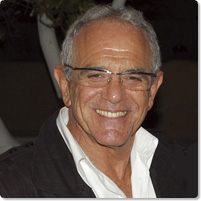
Yair Vardi
Director of Suzanne Dellal Centre
The Suzanne Dellal Centre for Dance and Theatre in Tel Aviv, Israel is a leading presence in the Israeli dance world, serving as base for the renowned Batsheva Dance Company and Inbal Pinto and Avshalom Pollack Dance Company and as organizer and venue for the International Exposure festival with its arts market type character that gathers dance professionals from around the world.
(Interviewed by Takao Norikoshi, Dec. 11, 2010 at The Suzanne Dellal Centre in Tel Aviv)
*1 “THE PROJECT – An Initiative of The Israel Opera and The Suzanne Dellal Centre” included “Through the Centre” by Emanuel Gat, “Light Years” by Jacopo Godani and “Super Nova” by Marco Goecke.
*2 Event program planned in 2011
Feb. Chinese Dance Celebration
Mar. DÍas de Flamenco
May The Magic of Indian Dance
June Batsheva Dance Company. Premiere
The Balkan Beat Box and The Suzanne Dellal Centre at the Israel Festival, Jerusalem
June-Aug. Summer Dance
July MadriDanza Tel Aviv
Aug. Bridge – Choreographic Dialogues – Summer Workshops
Sep. Photodance Exhibition and Auction / Shades in Dance
Oct. New Production – The Suzanne Dellal Centre
Oct.-Nov. Curtain Up!
Nov. The Piano Festival
Dec. International Exposure 2011
*3 The committee members for International Exposure 2010 were:
Tzlilit Ben Navat, Nilly Cohen, Siki Kol, Odeda Krubi, Ruti Lerman, Yaffa Olivetzky, Gideon Paz, Rachel Grodjinovsky, Claudio Kogon, Yair Vardi
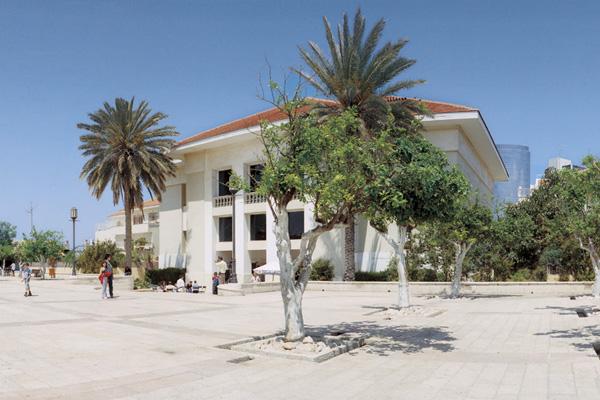
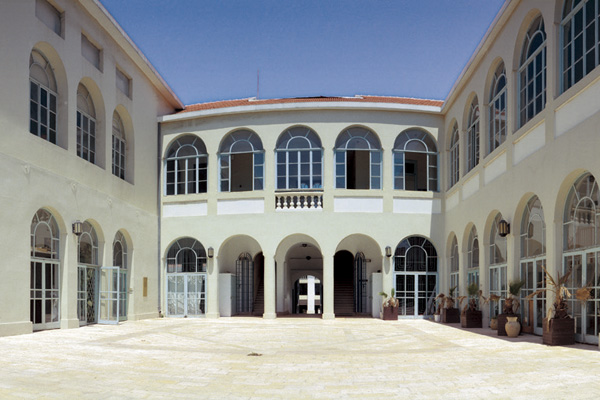
The Suzanne Dellal Centre for Dance and Theatre
Founded 1989. A central institution of dance in Israel. Under the strong leadership of director Yair Vardi, Israeli dance has won great recognition for its high level of quality. On the Centre’s grounds are four theater facilities and it serves as the base for the world renowned Batsheva Dance Company and Inbal Pinto and Avshalom Pollack Dance Company. Dance professionals from all over the world gather at the Centre for its “Curtain Up!” festival for young artists and its “International Exposure” festival with its arts market type character.
5 Yechiely St. , Neve Tzedek, Tel Aviv 65149, lSRAEL
Tel: +972- (0) 3-510S657
Fax: +972- (0) 3-5179634
lnfo[a]suzannedellal.org.il
https://suzannedellal.org.il/
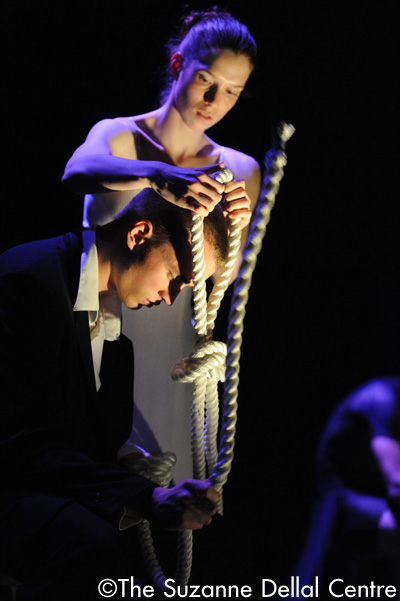
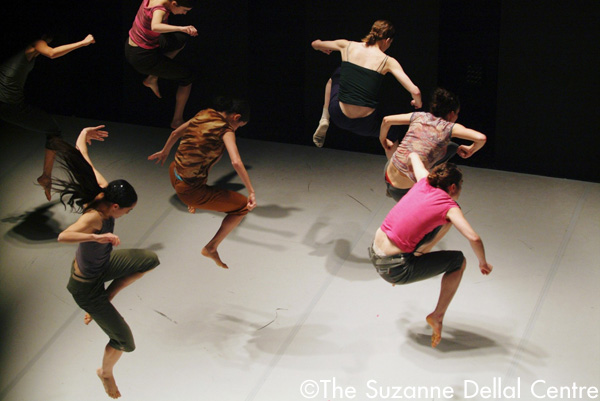
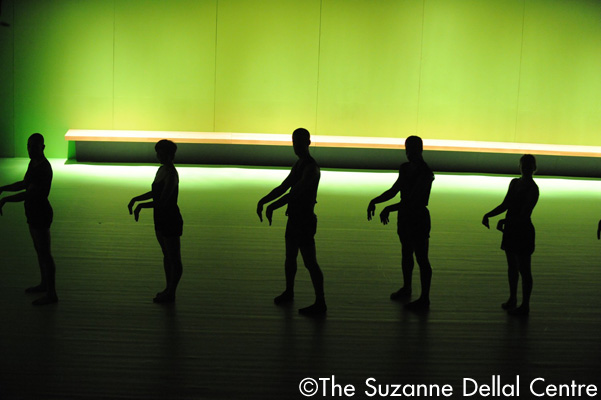
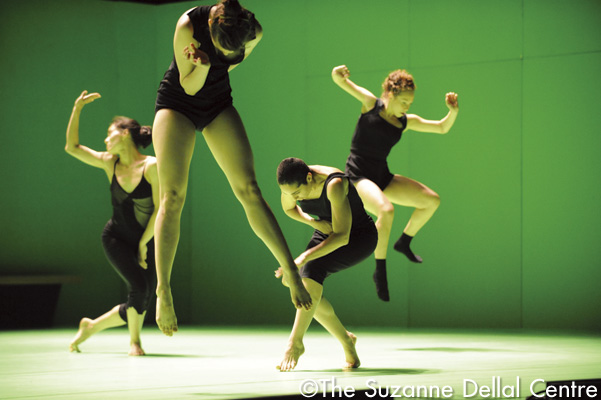
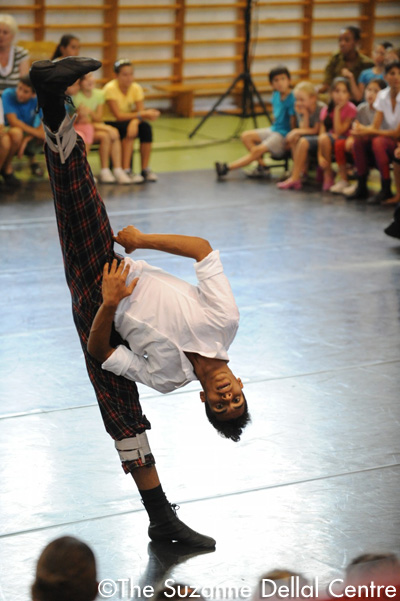
Batsheva Dance Company
Related Tags

